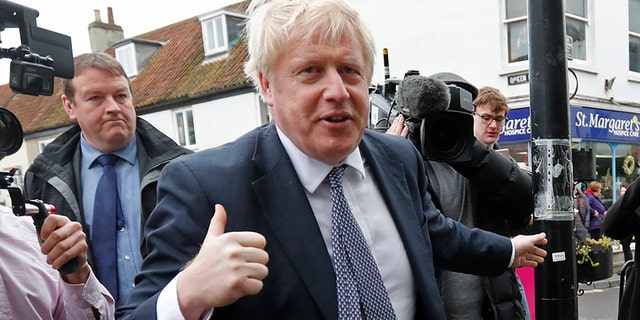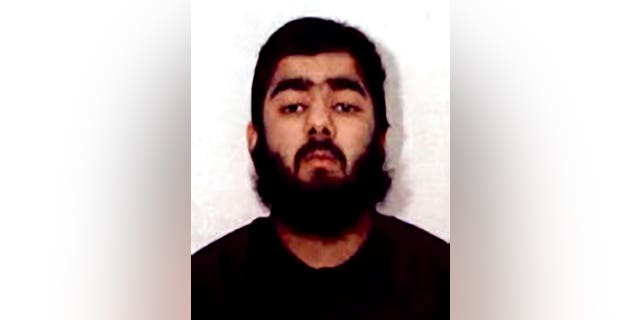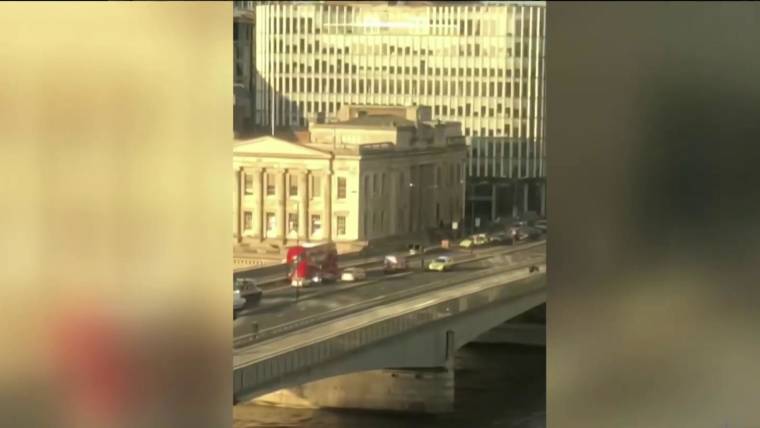The rising stakes come as Republicans on Sunday launched a new offensive to destroy the legitimacy of the Democratic process by claiming that Trump's enemies are rushing the somber business of making him the third impeached President in order to dodge a voter backlash.
Democratic leaders built a strong case in two weeks of televised witness hearings before the Thanksgiving break that Trump abused his power by attempting to coerce Ukraine to intervene in the 2020 election.
But their efforts have not shifted the nation's tribal political divisions in a way that could seriously threaten Trump's presidency and cause Republicans to desert him in the Senate trial expected early next year.
The action now moves from Rep. Adam Schiff's House Intelligence Committee, expected to vote to release the report of its investigation on Tuesday, to the House Judiciary Committee.
Rep. Jerry Nadler's panel will draw up articles of impeachment -- effectively the charges on which Trump would be tried in the Senate -- ahead of a full House vote expected before Christmas.
The committee will begin its business on Wednesday with an examination of the constitutional grounds for impeachment for which Nadler is yet to release a witness list. But the chairman offered Trump and his lawyers a chance to join Judiciary Committee proceedings, presenting them with a new tactical conundrum.
On Sunday evening, White House counsel Pat Cipollone told Nadler that the President and his lawyers would skip the hearing on Wednesday, and would respond later to a Friday deadline about participation in future hearings.
"We cannot fairly be expected to participate in a hearing while the witnesses are yet to be named and while it remains unclear whether the Judiciary Committee will afford the President a fair process through additional hearings," Cipollone said.
Democratic leaders have already said that Trump's withholding of nearly $400 million in military aid to Ukraine allegedly in an attempt to force an investigation of a domestic political opponent -- Joe Biden -- could satisfy the offense of bribery included in the constitutional conditions for impeachment.
And the President's refusal to provide key evidence and senior officials for testimony to the investigation could be folded into a separate article of impeachment on obstruction.
Democrats are moving ahead without hearing from central witnesses, including Trump's attorney Rudy Giuliani who led his off-the-books diplomatic effort in Ukraine, and former national security adviser John Bolton.
The legal challenges likely to be required to force such testimony could drag on for months and frustrate House Speaker Nancy Pelosi's desire to shield her lawmakers in election year 2020 by swiftly wrapping the impeachment process. And Democrats also say they already have sufficient evidence to impeach the President.
Minds made up
Raising the curtain for critical weeks in the political duel over the Trump presidency, Democrats on Sunday argued that the case against the commander-in-chief already merited impeachment.
And Republicans intensified their complaints about the fairness of the process and fanned Trump's disinformation campaign in a way that reflects their challenge in countering the facts of a case that became even more damning just before Thanksgiving.
In the latest blow to Trump's claims of innocence,
The New York Times reported last week that Trump released the hold on aid to Ukraine after he was briefed on a whistleblower's report raising the alarm at his pressure on the former Soviet state.
Republicans previously argued that there was no quid pro quo because Ukraine eventually got the money. But the Times report raises the possibility that the congressionally mandated taxpayer payment was only freed up after Trump got found out.
Democratic Sen. Amy Klobuchar of Minnesota, who is running for president, said on CNN's "State of the Union" on Sunday that
she had all but made up her mind over Trump's fate.
"I'm someone that wants to look at every single count," Klobuchar said, but added: "I have made very clear I think this is impeachable conduct."
California Democratic Rep. Zoe Lofgren,
the only lawmaker to have worked on all three modern impeachments, said Trump's transgressions were worse than those that led to President Richard Nixon's resignation.
"If you take a look at ... what the founding fathers were concerned about, it was the interference by foreign governments in our political system that was one of their gravest concerns," Lofgren, who sits on the House Judiciary Committee, said.
"Nixon's behavior didn't fall into that range. So, in that way, this conduct is more serious," Lofgren told CNN's Dana Bash.
But Louisiana Republican Sen. John Kennedy complained that the Democratic push for impeachment had been unfair from the start.
"Rounds one and two by Speaker Pelosi and Chairman Schiff are as rigged as a carnival ring toss," Kennedy said on NBC's "Meet the Press" in an appearance in which he again appeared to draw equivalences between Russian and Ukrainian election meddling.
Republicans have alleged that Ukraine interfered in 2016 to give a pretext for Trump's claim he withheld aid because he wanted to investigate political corruption in Kiev.
Georgia Rep. Doug Collins, the top Republican on the House Judiciary Committee, slammed Nadler's "made for TV event."
He complained that Republicans were not being given sufficient time to draw up witness lists given that the Intelligence committee would not vote on the Schiff report until Tuesday.
He said he didn't know if the White House would participate, but suggested Republicans want to call Schiff himself as a witness -- a step likely to be resisted by majority Democrats.
"It's an internal kind of time frame to try and finish this out by the end of the year because they want to get at this President right now before ... everybody completely sees through the process sham of the elections for next year. So we're rushing this," Collins said on "Fox News Sunday."
New tactical dilemma for the White House
Nadler's invitation to Trump to participate in his future hearings raises a dilemma for the White House -- especially after the President last week blasted Democrats as being "deranged" and "maniacs" for pursuing an impeachment probe.
By refusing to take part, Trump's team would be weakening their own arguments that Democrats are shutting them out of the process. But joining in would offer legitimacy to an investigation the President has dismissed as a sham and a hoax.
Nadler may be effectively laying a trap. If Trump's lawyers were to argue that his conduct does not reach the bar of impeachment they would implicitly be accepting that the President committed some kind of misconduct.
Trump has warned Republicans not to make such arguments, insisting his conduct -- including a call with Ukraine's president that shows him asking for a "favor" and a probe into Biden and his son Hunter -- is "perfect."
Trump's position increases political pressure on some Republican senators who are vulnerable in reelection races who might consider criticizing the President to give them political cover for a vote to acquit him.
One Republican Judiciary Committee member, California Rep. Tom McClintock, said it would be to the President's "advantage" to take part in the panel's proceedings. But he warned Trump had to weigh "enormous catastrophic damage" that could be done to the concept of executive privilege such a step might entail.
A White House official last week cast doubt on the sincerity of Nadler's offer, pointing out that Trump will be in London for the NATO summit during Wednesday's hearing.
Such debate highlights the challenge facing Nadler, a longtime antagonist of his fellow New Yorker Trump, as his committee takes the lead in driving the impeachment narrative.
Nadler's oversight efforts have so far been less successful in shaping a punchy, damaging case against the administration than Schiff's public hearings, which were disciplined and powerful and managed to largely neuter GOP efforts to disrupt them.
Can Democrats change the political game?
The coming weeks may offer the last best chance for Democrats to significantly alter the political temperature in the nation towards impeachment.
Although 50% of respondents approve of impeaching and removing Trump
according to CNN polling, two weeks of televised hearings did not significantly change the equation.
The situation reflects the fact that perceptions of Trump's behavior generally follow partisan lines in a nation deeply polarized by his presidency. It also suggests that while Trump's apparent willingness to use his constitutional authority to pursue his own interests at the expense of the nation's appears to be an abuse of power, Ukraine is an issue that is remote for many Americans more concerned with considerations driving the 2020 election, including health care, education and the economy.
https://news.google.com/__i/rss/rd/articles/CBMiXWh0dHBzOi8vd3d3LmNubi5jb20vMjAxOS8xMi8wMi9wb2xpdGljcy9kZW1vY3JhdHMtanVkaWNpYXJ5LXRydW1wLWltcGVhY2htZW50LW5hdG8vaW5kZXguaHRtbNIBYWh0dHBzOi8vYW1wLmNubi5jb20vY25uLzIwMTkvMTIvMDIvcG9saXRpY3MvZGVtb2NyYXRzLWp1ZGljaWFyeS10cnVtcC1pbXBlYWNobWVudC1uYXRvL2luZGV4Lmh0bWw?oc=5














